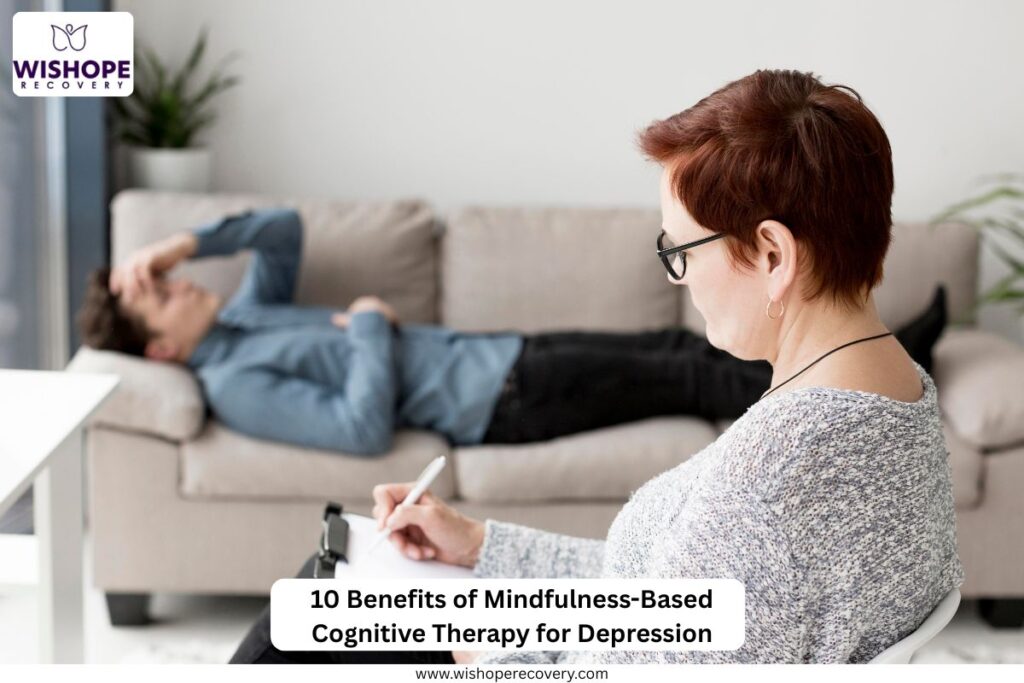Depression is a pervasive problem, affecting millions of individuals globally, resulting in ongoing sadness, hopelessness, and disconnection from life in general. Regardless of the effectiveness of medication and talk therapy, a new innovative route is available that combines traditional mindfulness practices with modern cognitive techniques. Mindfulness-based Cognitive Therapy for Depression evidently has a route to healing taking care of both symptoms and patterns contributing to depressive experiences.
Mindfulness based cognitive therapy was developed by academic researchers Mark Williams, John Teasdale, and Zindel Segal. This therapeutic approach uniquely combines mindfulness meditation practices with the already established practice of cognitive behavioral therapy. The consequence is a completely therapeutic arena to allow and develop a different relationship with thoughts that ultimately contributes to preventing relapse or deteriorating mental health if used as a core practice with ongoing commitment.
1. Breaks the Cycle of Rumination
One of the greatest advantages of mindfulness cognitive therapy for depression is its ability to break the ruined cycle of rumination found throughout depressive thinking. Individuals suffering with depression tend to engage in continuous harming thought patterns. Most will spend their time analyzing occurrences from “the past” or worrying about unfortunate events that may take place in “the future.” This training prepares individuals to experience their thoughts and notice them, without becoming lost in their thoughts, therefore creating distance between themselves and their conditioned mind. Mental training of this nature educates patients to rapidly detect rumination and reframe their attention to the present moment.
2. Develops Emotional Regulation Skills
One important aspect of depression is that it often leads to extreme emotional states that can feel very overpowering and unrecoverable. Mindful Based Cognitive Therapy for Depression offers practical strategies for working with these challenging emotions. The approach does not try to avoid or suppress feeling, rather embraces the emotional experience with acceptance or allows individuals to acknowledge their emotional experience while remaining somewhat steady and grounded in the present moment experience. This practice can help develop emotional resilience, that is, the ability to feel challenging feelings without completely being overwhelmed.
3. Enhances Self-Awareness and Insight
The mindfulness aspect of this treatment fosters a more profound awareness of personal thought processes, emotional triggers, and behavioral responses. The therapy practice of mindfulness develops self-awareness so a person can recognize early warning signs of depression before it worsens. This insight helps individuals action their individual ability to respond to respecting their mental health. mental health, whether that means seeking additional support, adjusting their self-care routines, or implementing coping strategies they’ve learned in therapy.
4. Reduces Relapse Rates Significantly
Studies have shown that this intervention is especially effective at reducing the risk of relapse into depression. For example, evidence suggests that those who complete an 8-week program have about a 43% lower risk of relapse in comparison with a group who received treatment as usual. The skills acquired through mindfulness meditation cognitive therapy lead to changes that persist long after treatment itself has ended and afford lasting protection from a future depressive episode by changing how one relates to their thoughts and emotions.
5. Improves Present-Moment Awareness
In many ways, the experience of depression may be characterized by being mentally stuck in the past, or the future, and as a result missing opportunities for joy, connection and relationships in the present moment. This treatment approach is designed to have people learn to focus their attention more in the here and now, and learn to fully experience the life they are living at the time. When individuals are able to focus more in the present moment, it may increase appreciation for common life’s simple pleasures, more connection with others, and may create a greater sense of aliveness and value in the activities they engage in.

6. Teaches Acceptance of Difficult Experiences
This approach doesn’t involve battling against uncomfortable thoughts and feelings but instead it teaches the invaluable skill of acceptance. They learn that attempting to get rid of their negative emotions often simply intensifies them, while acceptance can lessen their power and lifespan. Acceptance doesn’t equal resignation. It is wise acceptance that you cannot get rid of the difficult things that you are experiencing. And you can always work with difficult experiences, and respond to them, with the compassion and skill that accompany our humanity.
7. Strengthens Cognitive Flexibility
Often, rigidity of thinking keeps the wheels of negative mood states locked. Depression is characterized by rigid thinking patterns. The cognitive therapy aspect of the CBT process provides the opportunity to notice rigid, unhelpful thinking patterns, while also developing more balanced and realistic perspectives. This skill is critical for breaking out of the shackles of the rigid, unhelpful thought patterns which contributed to the onset of depressive symptoms.
8. Builds Stress Resilience
Chronic stress often assists in the development and maintenance of depression. mindfulness cognitive therapy for depression provides the tools provided to manage an individual’s responses to stress. With greater contemporary mindful awareness in therapy, the individual can manage a more equal balance of life’s stresses. Overtime, practice promotes the importance of responding, rather than reacting, to a stressful situation, allowing the individual to maintain an emotional baseline of equilibrium. This ability for the individual to exhibit resilience toward stress, providing protection from future depressive episodes.
9. Promotes Self-Compassion
Depression usually contains harsh self-criticism and perfectionism contributing to negative mood states. This therapy specifically encourages self-compassion, to treat oneself in a kindly way that one would treat a good friend. By practicing self-compassion, one can learn to combat the internal critic that is linked to depression and create a more compassionate interior environment. This changed relationship with oneself has often been a transformative part of therapy for people with depression.
10. Provides Practical, Accessible Tools
This approach differs from some other forms of therapy, which tend to be more continuous for longer periods, in that it offers people practical tips and tools that they can use on their own. It’s an approach where the meditation practices, breathing exercises, and cognitive techniques become part of daily living, life-long support for mental health maintenance. The fact that they have solid skills that they can use when challenging emotions come up is something that people like – the sense of empowerment and self-efficacy that brings for one’s mental health.
Finding Support and Getting Started
Anyone wishing to investigate this therapeutic approach may be able to search for mindfulness based cognitive therapy near me to find structured practitioners in your area. Many mental health professionals now prescribe this specific treatment method, and many group programs are popping up in community centres, hospitals, or private practices.
The recovery process from depression involves personal journeys, and what may work for one person may not work for another. Nevertheless, the increasing evidence of research that supports this integrated approach indicates practicing mindfulness strategies to develop cognitive therapy techniques is compelling for individual’s recovery journeys, and mental health outcomes could reflect an positive future for mental well being. Developing new ways of learning to relate to your thoughts and emotions can create personal freedom from the habitual patterns sustaining a depressed state, as well as, more fluid and resilient engagement in joy with others.

